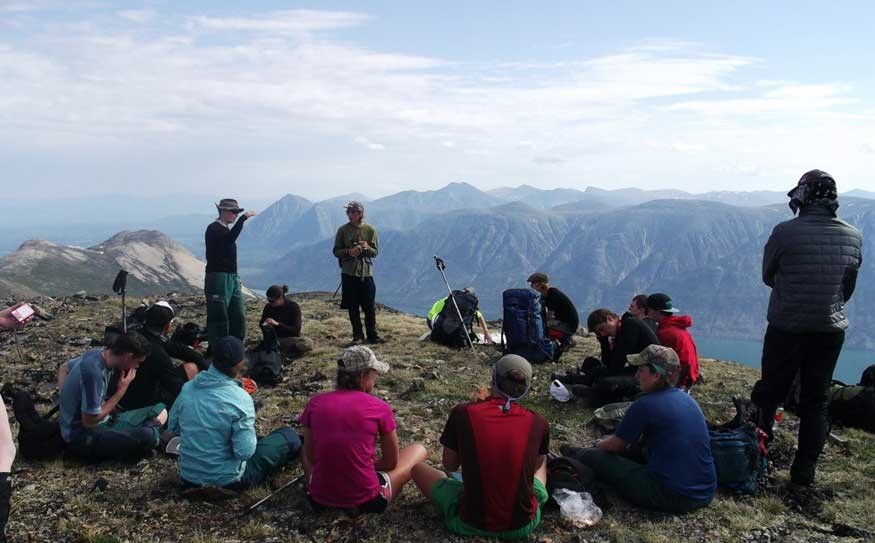The tourism and outdoor recreation program at Capilano University is almost as old as Whistler. At 40, the program has made the most of having the resort so close for its students, many of whom end up working here after graduation.
Others train while still students at the hotels, Tourism Whistler, Whistler Blackcomb, or at one of the many outdoor activities companies based at the resort.
And some, like Katie Copland, do a little of both.
Copland, 26, is the guest experience manager at Riverside Resort campground and oversees staff managing check-ins and checkouts, group activities and the putting greens. She graduated from the Outdoor Recreation program at the university's North Vancouver campus in 2006, and has been with Riverside Resort for four years, living in Whistler for five — her career continued where her course left off.
Copland said she gained valuable professional experience with package tour operators Destination Snow, with "lots of day trips to Whistler and overnights."
"That's the nice thing about the course, it's not like you're learning about the area and moving away, it totally applies to where I'm working and what I'm doing, what I really like," Copland said, adding that she has hired graduates from the program.
"It makes the transition from finishing school to finding work very easy in the sense that you have a whole variety of jobs available, too, and you've met people."
When asked how many of his students have benefitted from the Whistler connection, Chris Bottrill, Dean of the Faculty of Tourism and Outdoor Recreation, laughed and said "I'm almost convinced it is 100 per cent."
There are 300 to 400 students in the seven tourism degrees, postgraduate diplomas or certificate programs offered at the university's three campuses in Squamish, North Vancouver, and Sechelt, Bottrill said.
"In a nutshell, Whistler is extremely important to our program and to the learning experience of the students. We certainly run field trips (to Whistler) for all our programs," he added.
"There is enormous benefit for both sides, no doubt about that. We have terrific graduates who have found their homes in Whistler."
For the faculty, course programming has been a case of staying attuned to what has been happening to tourism leaders like Whistler and continually updating what's on offer.
"We evolve to, we hope, both lead and keep pace with industry needs in our respective areas of tourism and outdoor recreation," Bottrill said. "We feel we've taken a leadership role in helping professionalize the industry over the years and we plan to continue to do that. It takes continual assessment of the tourism and outdoor recreation climate and what the emerging needs are."
Sue Eckersley, director of World Ski and Snowboard Festival, taught course in events management five years ago as part of a focus on the subject prior to the 2010 Winter Olympics. Over the years, her students have worked on programming parts of the festival, much to their delight.
They've taken part in programming at the festival's start and, for the last two years, produced the Big Air night on the second Saturday. She called it "a great experience and confidence builder". This year, 12 students helped out.
"It's pretty exciting, it's the signature piece of the festival. For the students, it gives them an amazing opportunity to be involved in something special. For the event and for us, it gives us 10, 12 new ideas. It's a win-win scenario for sure," Eckersley said.
"It's a tough world to break into. Giving younger people the chance to break in was an opportunity I wanted to take (as a career mentor)."
Jen Reilly, the convener of the Bachelor of Tourism Management degree, calls Whistler the students' "learning lab" with Tourism and Hospitality students hitting the ground learning — coming to the resort in the first week of their program.
Are they being attracted to the program because of its proximity to Whistler?
"Oh for sure," said Reilly. "Whistler is the draw. Every year we get people who have lived in Whistler and have decided they want to work in the tourism industry, but don't want to continue working as a server or a lifty, or one of the lower-rung jobs."




